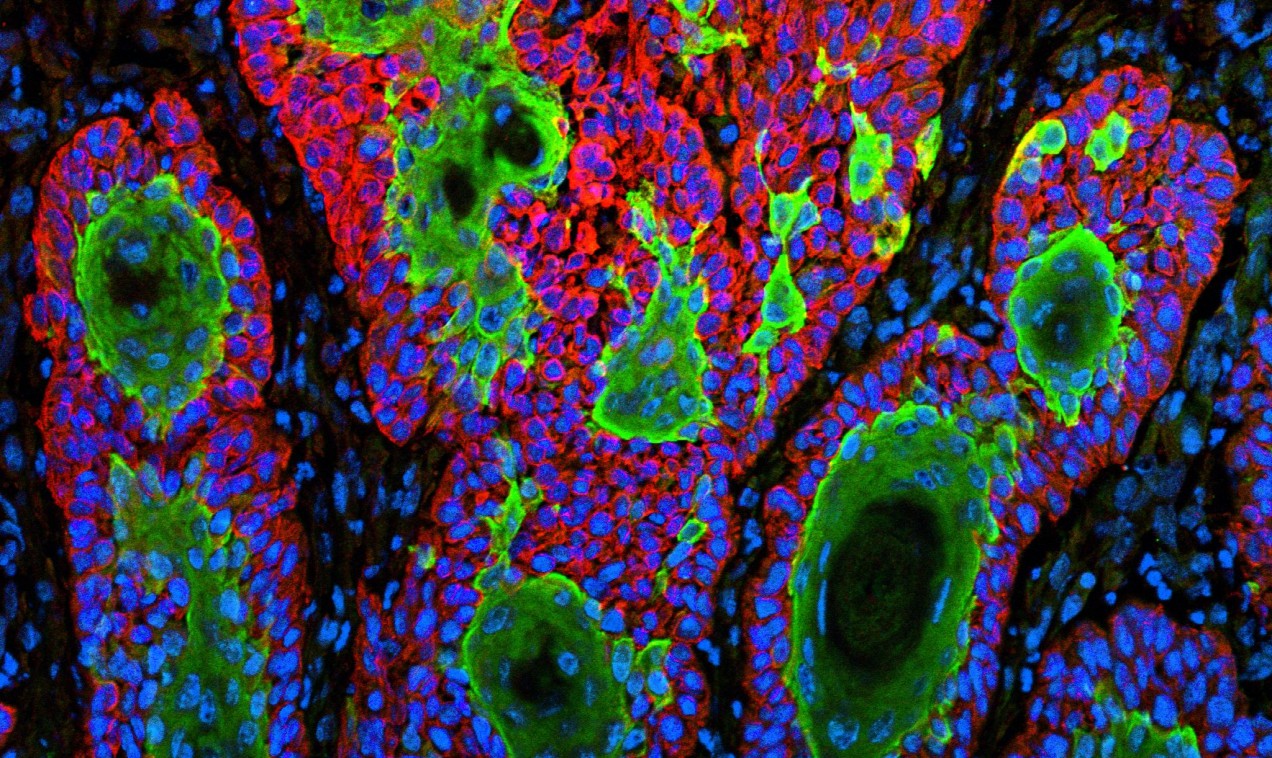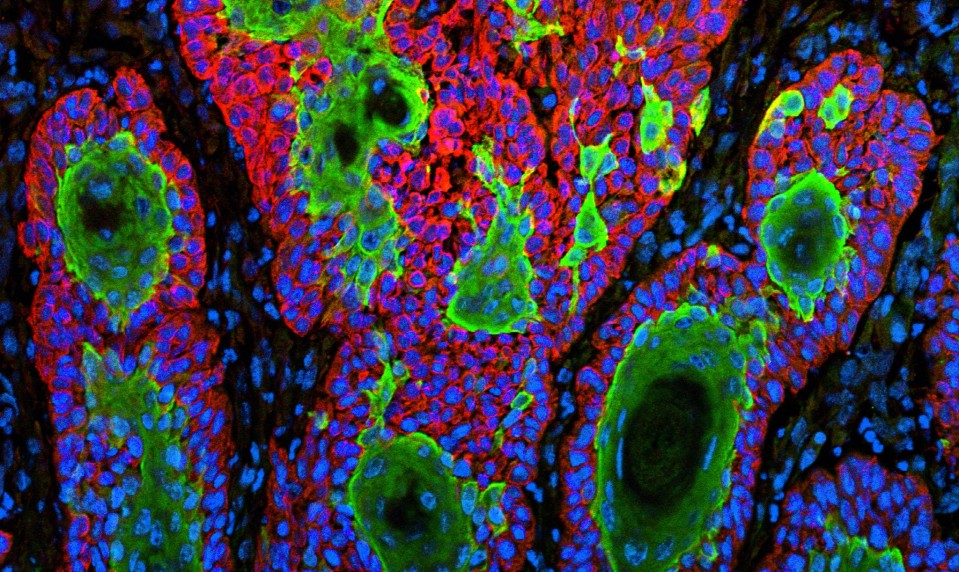

Outwitting cancer
A drug combination makes chemo more effective.

Many chemotherapy drugs kill cancer cells by severely damaging their DNA. However, a DNA repair pathway allows some tumors to survive and introduces mutations that help cells resist future treatment.
Researchers at MIT and Duke have discovered a drug compound that can block this repair pathway. When they treated mice with this compound along with cisplatin, a DNA-damaging drug used as the first treatment option for at least a dozen types of cancer, tumors shrank much more than those treated with cisplatin alone.
An important mechanism cancer cells use to outwit chemo relies on enzymes called translesion synthesis (TLS) polymerases to essentially copy over damaged DNA. The copying is not very accurate, but the resulting mutations are themselves an obstacle to successful chemotherapy.
The Duke collaborators screened about 10,000 potential drug compounds and identified one that binds tightly to one of the TLS polymerase components, preventing a functional polymerase from forming. When the MIT team tested this compound with cisplatin in several types of human cancer cells and in a mouse model of cancer, the combination killed many more cells than cisplatin alone. Moreover, the cells that survived were much less likely to generate new mutations.
The research team includes Nimrat Chatterjee, an MIT postdoc and a lead author of the study, and biology professors Graham Walker and Michael Hemann.